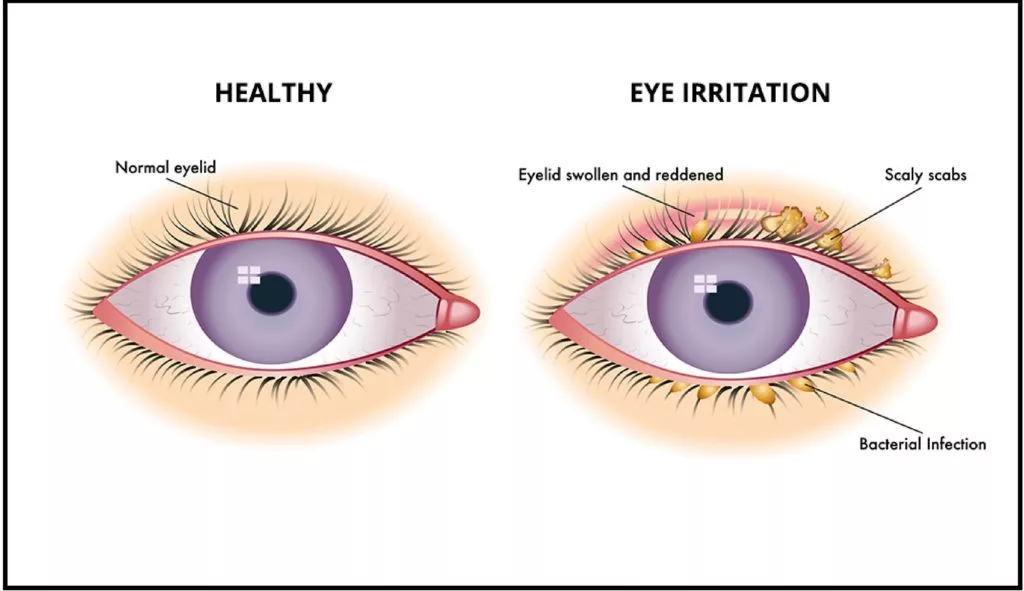ASK THE CPCMG PEDIATRICIAN:
Blepharitis

My child’s eyelashes are constantly irritated and they look crusted. Allergy medication is not helping. What else could this be?
A child’s eyes can be very sensitive so if your child is reporting pain or itching around their eyes, it is definitely worth investigating. While you may be familiar with “pink eye” or conjunctivitis, another source of eye symptoms is blepharitis which is literally “inflammation of the base of the eyelashes.”
Blepharitis may appear as crustiness around the eyelashes. If this crustiness persists, the discharge can cause additional symptoms. These symptoms include redness of the whites of the eyes, discharge around the eyes and the sensation of dry eyes. There is also some evidence that blepharitis will eventually cause a stye in the eye, chronic dry eyes or bacterial conjunctivitis.
This condition is not dangerous but it can be annoying. Small children will be bothered by it and teens will not like the appearance of the crustiness and the light colored flakes around the eyelashes. Blepharitis is not likely to cause any visual change but if your child is reporting blurriness, or double vision or pain with vision, take your child to your CPCMG pediatrician right away.
While there is not one specific cause of this eye condition, it is thought to be caused by bacterial overgrowth on the eyelids. If your child has an underlying skin condition like seborrhea or extremely dry skin, it can cause more crustiness. In addition, it may be more difficult to clear the condition.
Diagnosing blepharitis is relatively simple. Your pediatrician will take a good history and complete a physical exam (no blood test is necessary). If your child has a lot of discharge, a routine culture may help with the diagnosis and treatment.
The first step to treat blepharitis is washing the eyelids on a daily basis which can be very effective. Many ophthalmologists recommend washing with baby shampoo as it will not irritate the eyes. Warm compresses also may be used as they can sooth the eyes. If necessary, oral and or topical antibiotics may be beneficial in helping to eradicate the bacterial overgrowth which is causing blepharitis.
Blepharitis is not contagious and children should not be kept home from school for this condition. Unfortunately, the condition can be difficult to treat and your child may have symptoms for several weeks. Schedule an appointment with your CPCMG pediatrician if your child has symptoms consistent with blepharitis and the condition is not going away.

